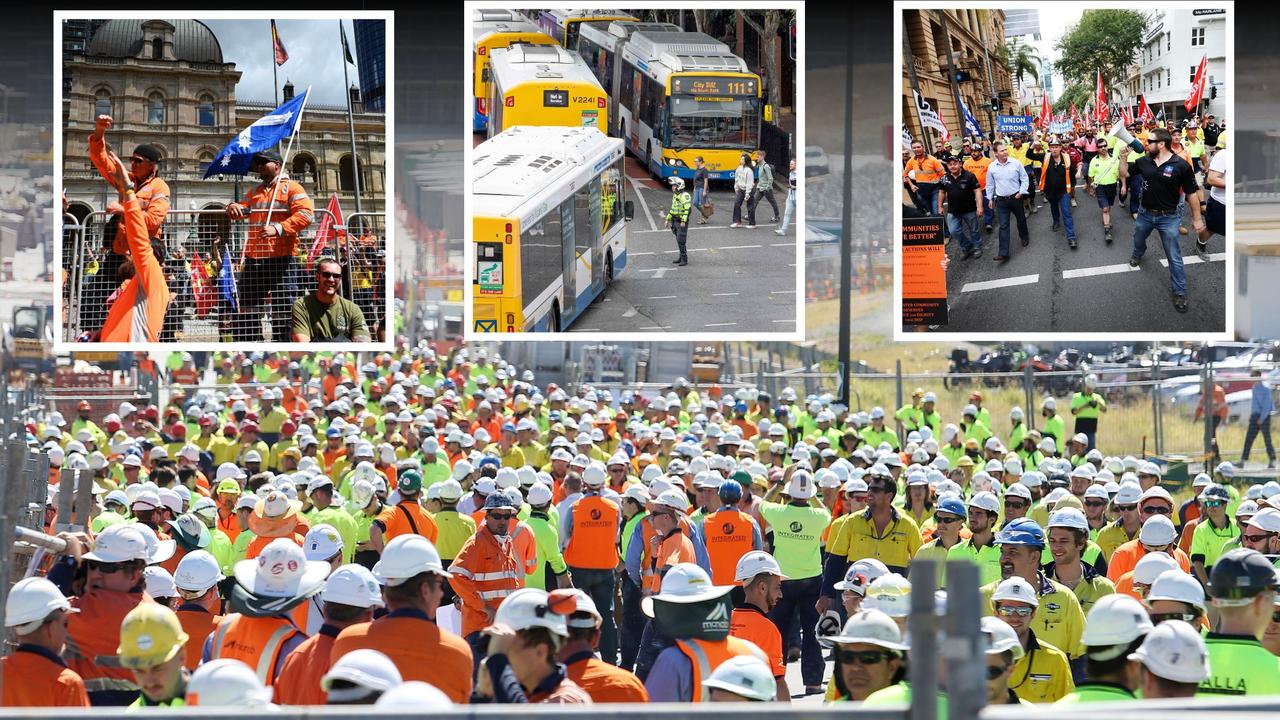Premier Miles to follow through on Palaszczuk’s vow to retrieve Indigenous items from British Museum
A respected Indigenous academic has detailed the emotional and painstaking process to retrieve cultural artefacts from international museums.

QLD Politics
Don't miss out on the headlines from QLD Politics. Followed categories will be added to My News.
A respected Indigenous academic has detailed the emotional and painstaking process to retrieve artefacts from international museums as Premier Steven Miles confirms he will pick up his predecessor’s pledge to prise cultural items from the British Museum.
Then-premier Annastacia Palaszczuk last year promised to personally travel to the London institution and retrieve thousands of historic and cultural items.
She made the pledge at a special parliamentary sitting in Cairns after learning of thousands of First Nations shields and spears lying in the museum’s cellar.
Mr Miles said he would not be banging down the museum’s doors this year, having already committed to staying in Australia until at least the October election, but the government would follow through on its $4.6m five-year plan to return items to First Nations communities.

The Courier-Mail can reveal Queensland Museum has begun negotiating with British government-owned museums known to hold cultural heritage belonging to First Nations people and Mr Miles is open to travelling overseas in the future to assist in the retrieval efforts.
But Dr Harry Van Issum, principal fellow at the Griffith Centre for Social and Cultural Research, who has first-hand experience of repossessing items, said the process could take many years as reluctant global museums stall in handing over artefacts.
Dr Van Issum, principal fellow at the Griffith Centre for Social and Cultural Research, has worked closely in a number of repatriation efforts, including his own community’s bid to retrieve skeletal remains from the Natural History Museum.

He has thoroughly prepared documents to prove the ancestral remains belonging to his Woppaburra community of the Keppel Islands but, five years later, the museum is yet to return the items.
“You’re beholden to their rules,” said Dr Van Issum, who has also helped in the retrieval initiative as a board member at the Queensland Museum.
“We have the provenance of them, we have the record, we have the dates they were sent there, we know exactly what they are and what went and the time and the date and the documents from the Queensland Museum.
“Then when it gets to the London Natural History Museum, they talk about them doing proper research to find the provenance.
“And from our perspective, it was already done.
“We probably don’t agree with a lot of the steps, but we understand it’s just a process of encouraging them to move on without pulling a big stick out, because it doesn’t get us there any quicker.”

There are countless items belonging to Aboriginal and Torres Strait Islander people locked up in institutions across the globe.
But Dr Van Issum said the refusal to hand over skeletal remains was particularly distressing for First Nations communities.
“We believe their spirit is still there – it’s attached to those objects and it hasn’t been allowed to move on to the next place,” he said.
“So they’re upset, they’re distressed, and they need to be brought back to country and have a proper ceremony in the way that a particular community might do it.
“Some people do smoking ceremonies, some people do water ceremonies, but based on that community, it’s usually a cleansing type of ceremony that welcomes that spirit that’s attached to those remains back to Country.”

Mr Miles said he supported the initiative, but warned the process could take time and involved delicate consultation.
“The Australian Institute of Aboriginal and Torres Strait Islander Studies is leading the Return of Cultural Heritage Initiative, to return cultural heritage materials held overseas to Traditional custodians in Australia,” he said.
“My department has made contact with the Institute and is supporting the Department of Treaty, Aboriginal and Torres Strait Islander Partnerships, Communities and the Arts to advocate for the return of materials to Queensland.”




